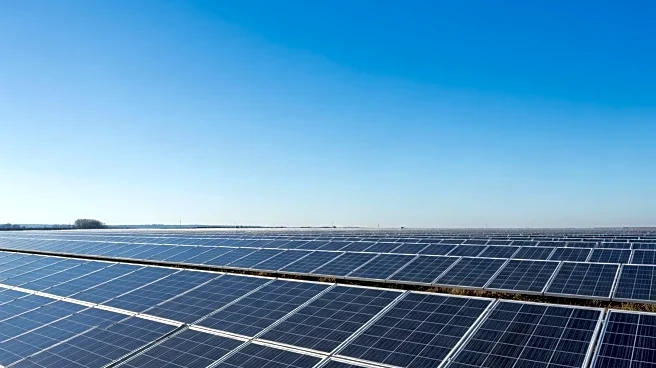What's Happening?
Iraq has inaugurated its first industrial-scale solar plant in the Karbala desert, marking a significant step towards expanding renewable energy production in the country. The plant aims to supply the national electricity network, reduce fuel consumption during peak daytime loads, and minimize environmental impacts from gas emissions. The Karbala solar plant is expected to produce up to 300 megawatts of electricity at its peak. This initiative is part of Iraq's broader plan to implement large-scale solar projects to alleviate chronic electricity shortages.
Why It's Important?
The opening of the solar plant represents a crucial development in Iraq's efforts to diversify its energy sources and reduce reliance on imported Iranian gas and electricity. By increasing domestic renewable energy production, Iraq can improve energy security and reduce the risk of sanctions related to its energy imports. The solar projects could also contribute to economic growth by creating jobs and attracting investment in the renewable energy sector.
What's Next?
Iraq plans to continue expanding its solar energy capacity, with additional projects underway in Babil and Basra provinces. These efforts are part of a larger strategy to meet 15% to 20% of the country's electricity demand through solar power. The government will likely continue negotiating with international companies to secure favorable electricity purchase agreements, further enhancing the country's energy infrastructure.
Beyond the Headlines
Iraq's shift towards renewable energy highlights the challenges faced by oil-rich nations in balancing traditional energy resources with sustainable alternatives. The move may also influence regional energy policies and encourage other Middle Eastern countries to invest in renewable energy solutions. Additionally, the development of solar infrastructure could foster technological innovation and collaboration with global energy companies.











